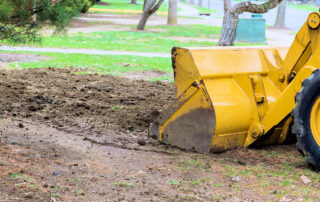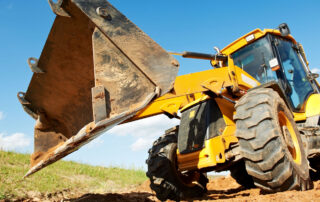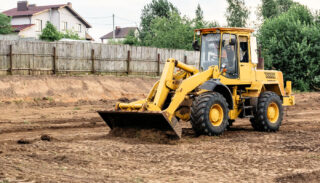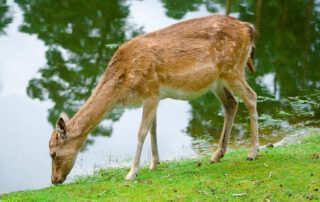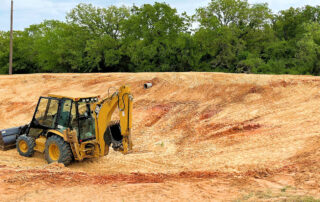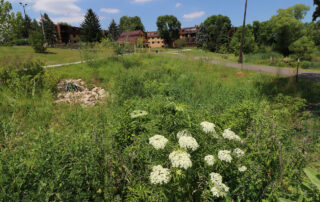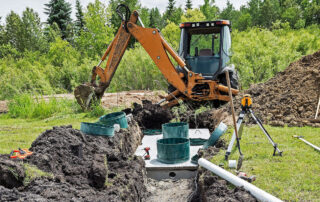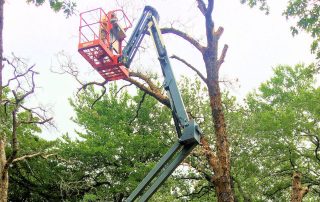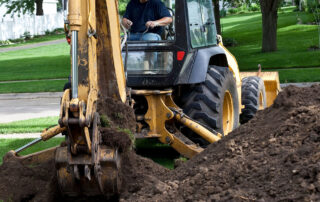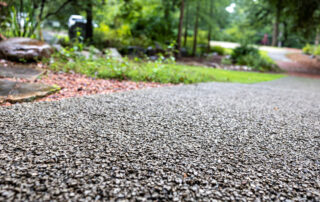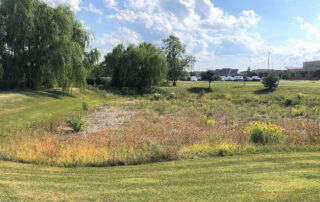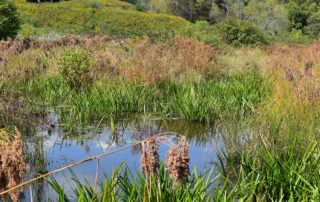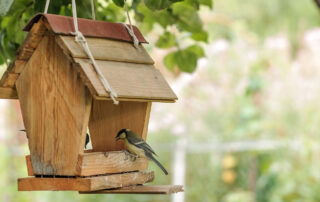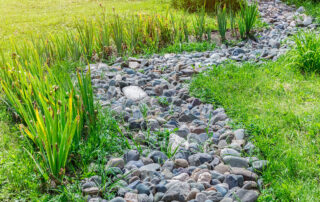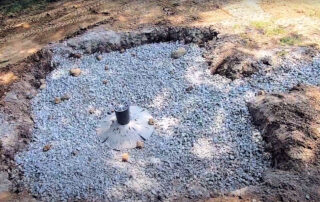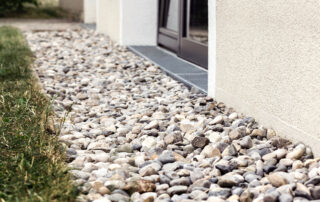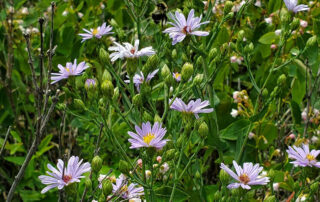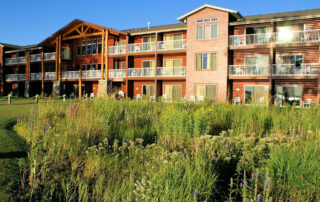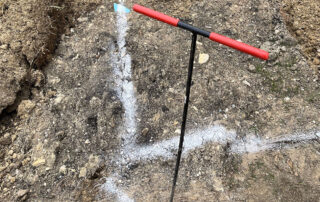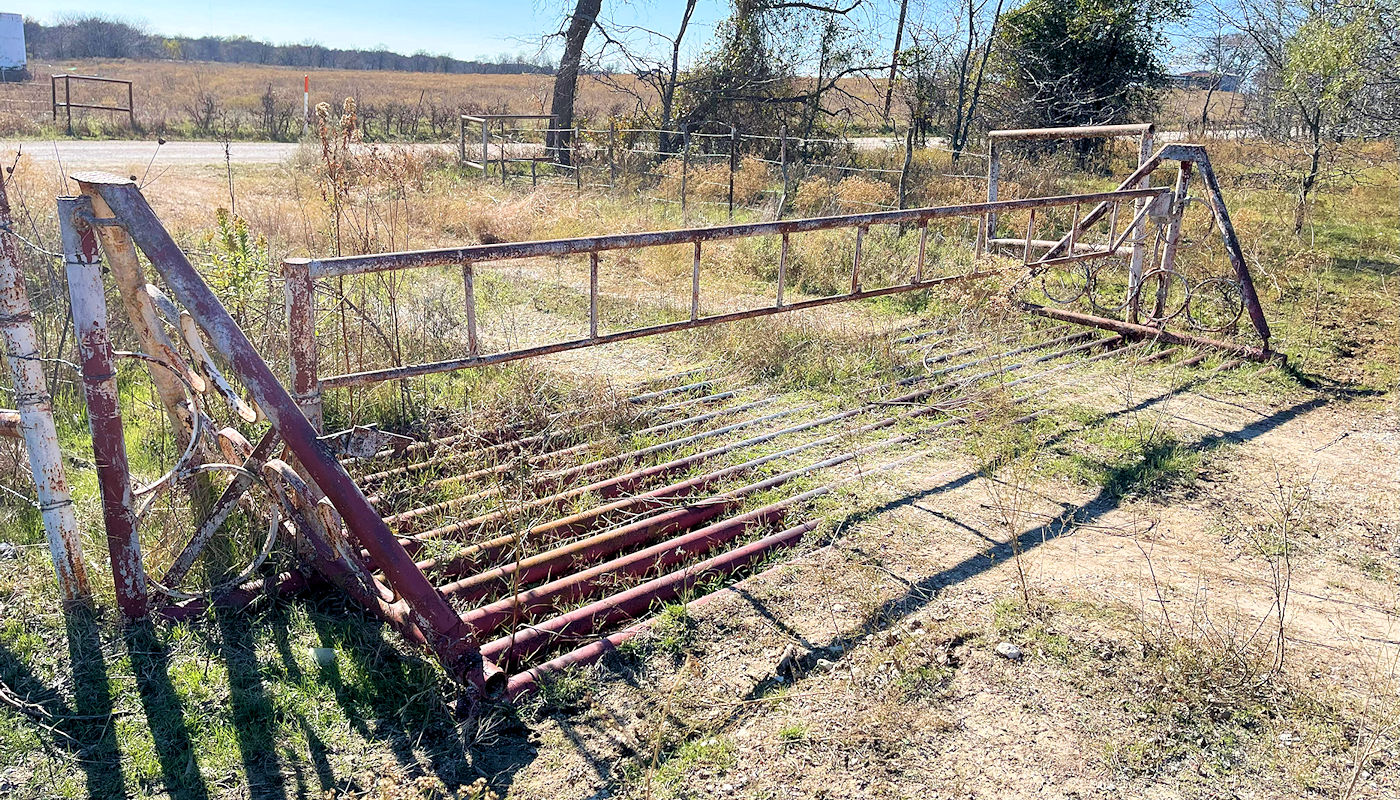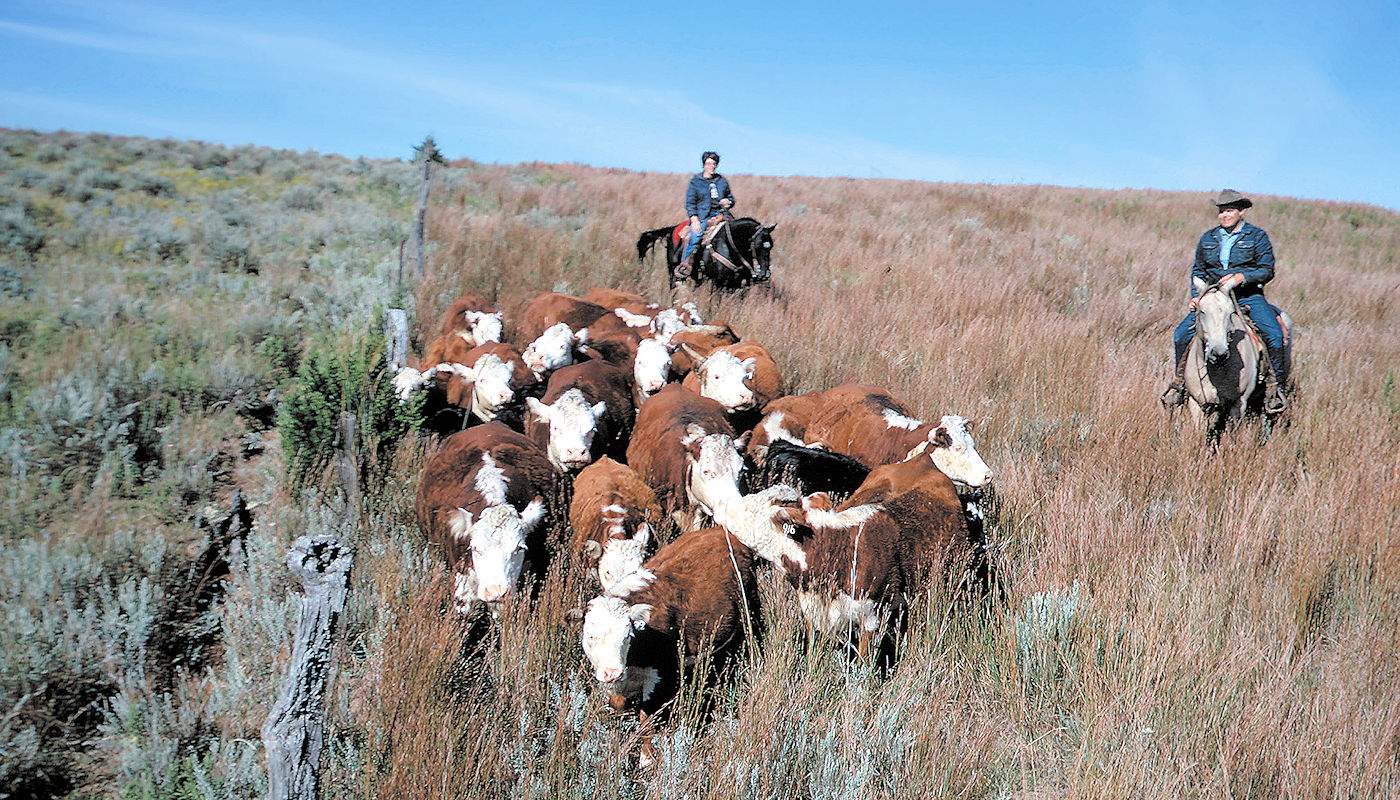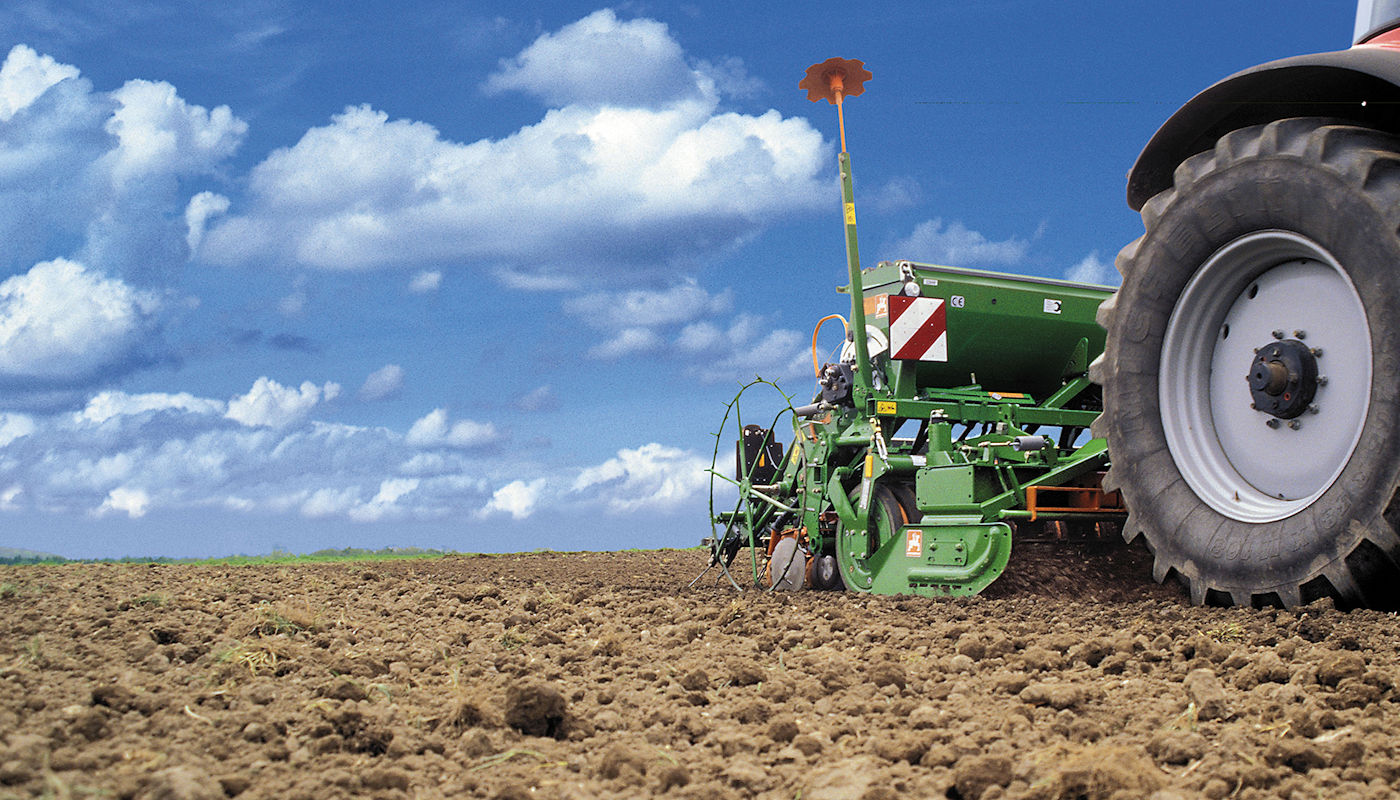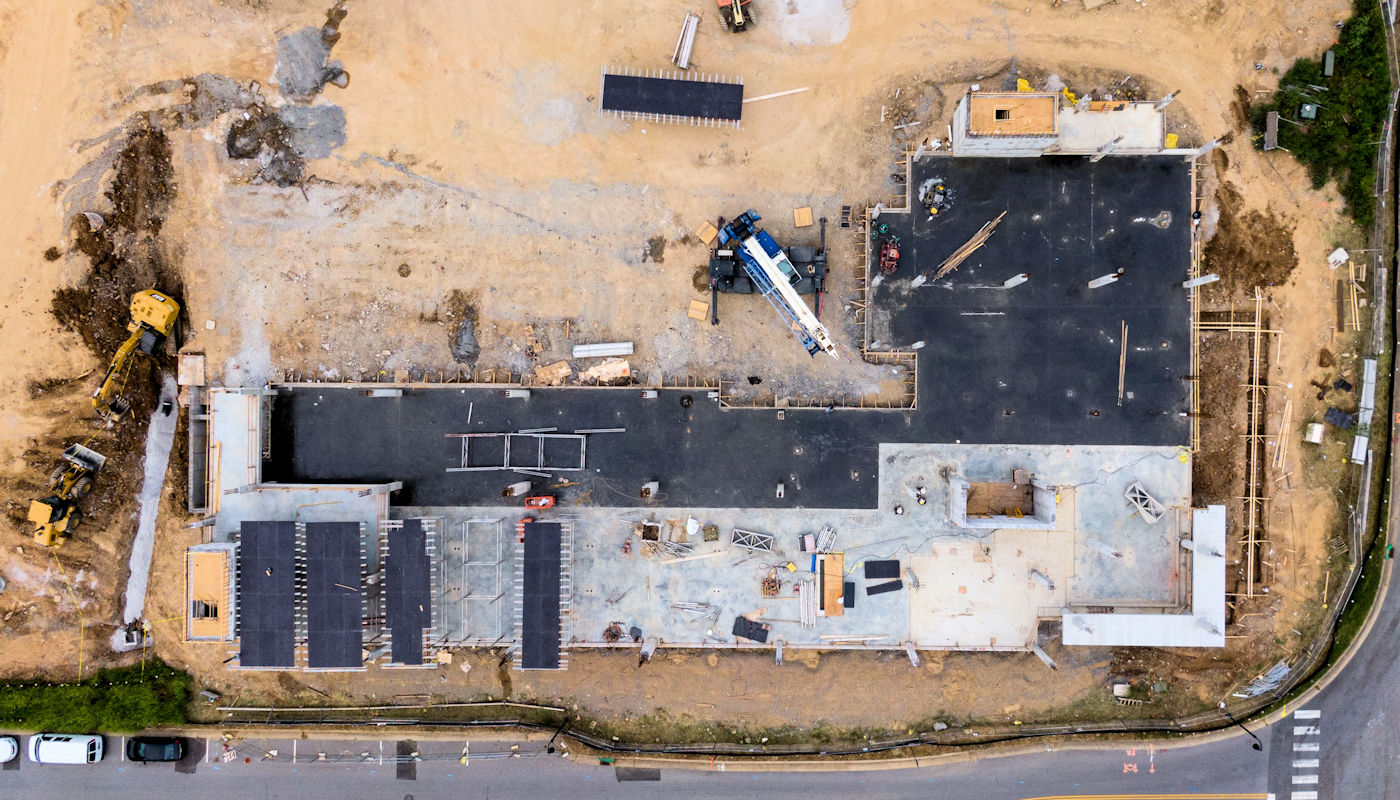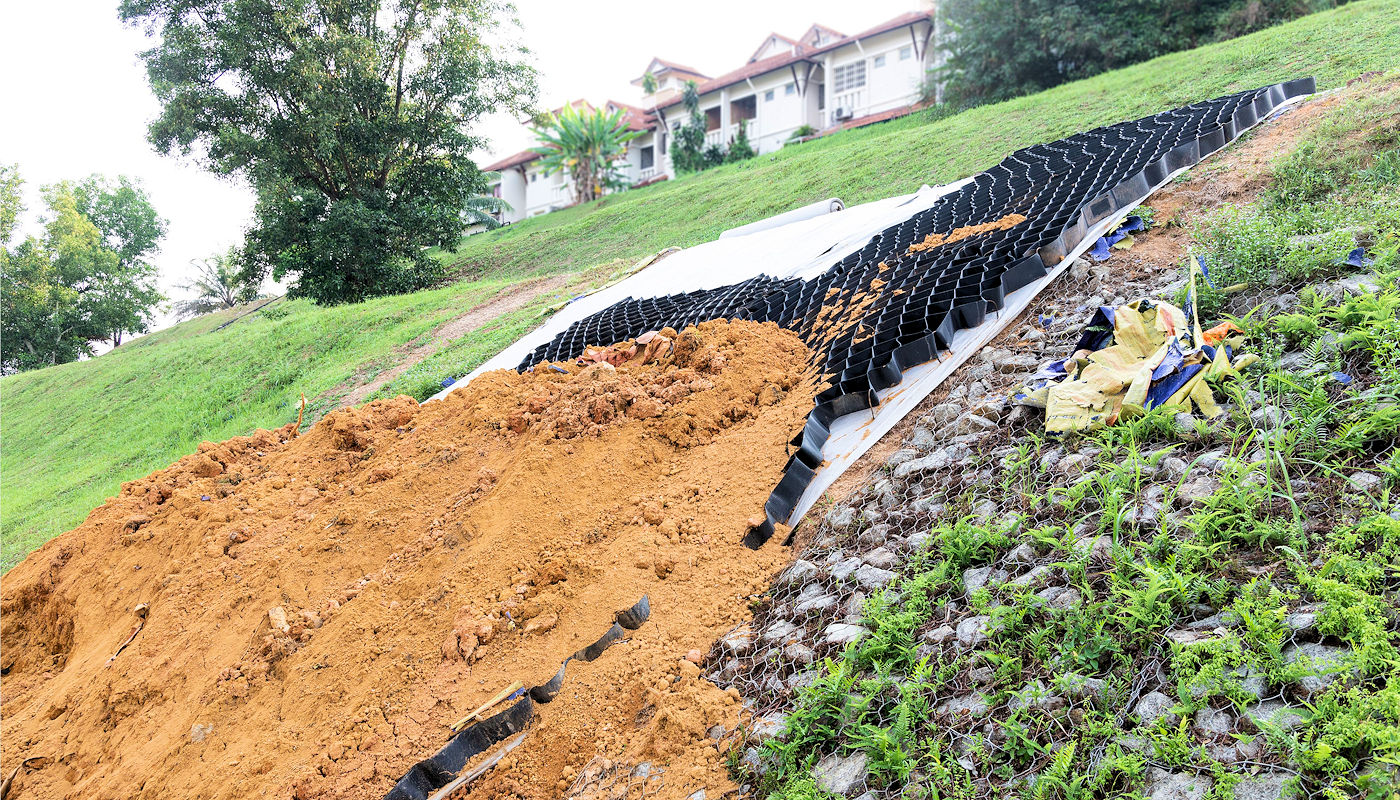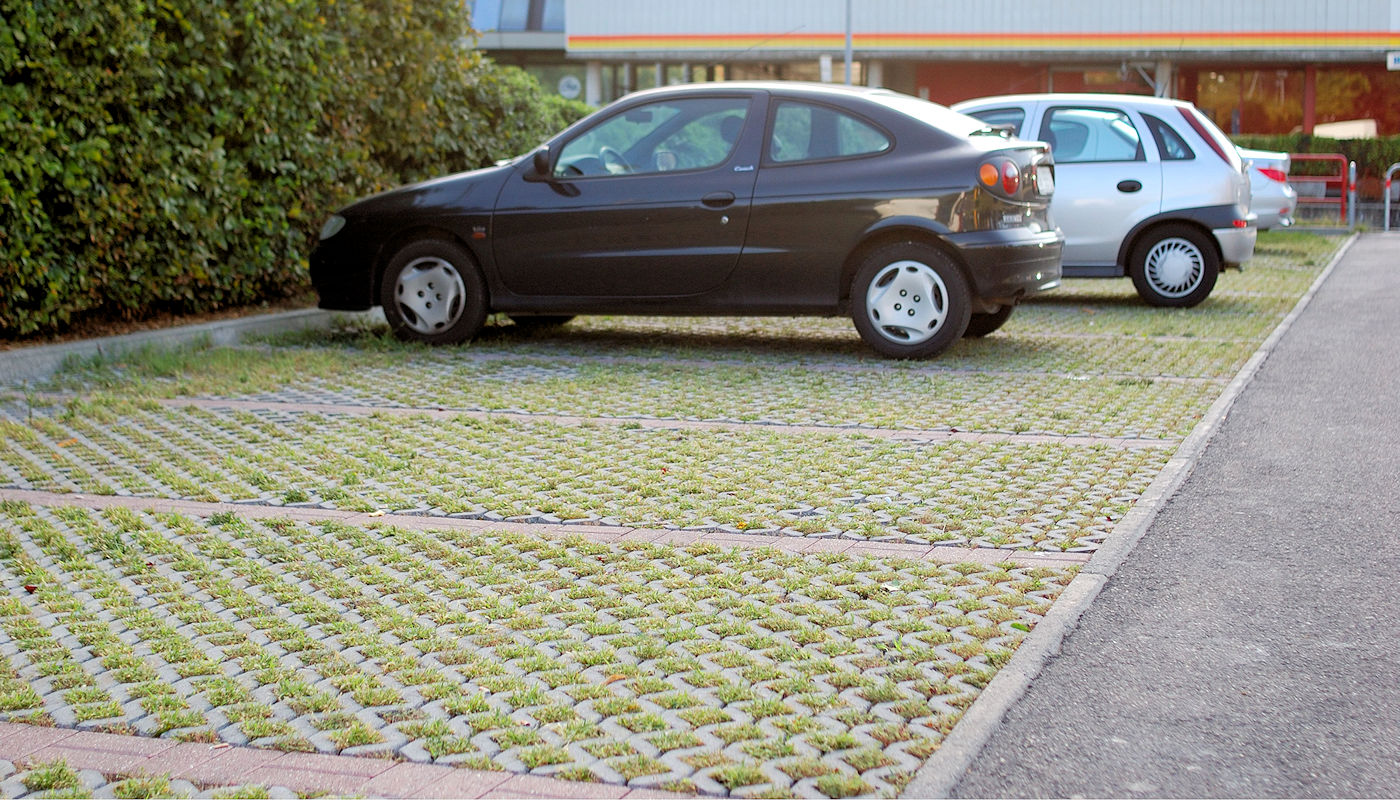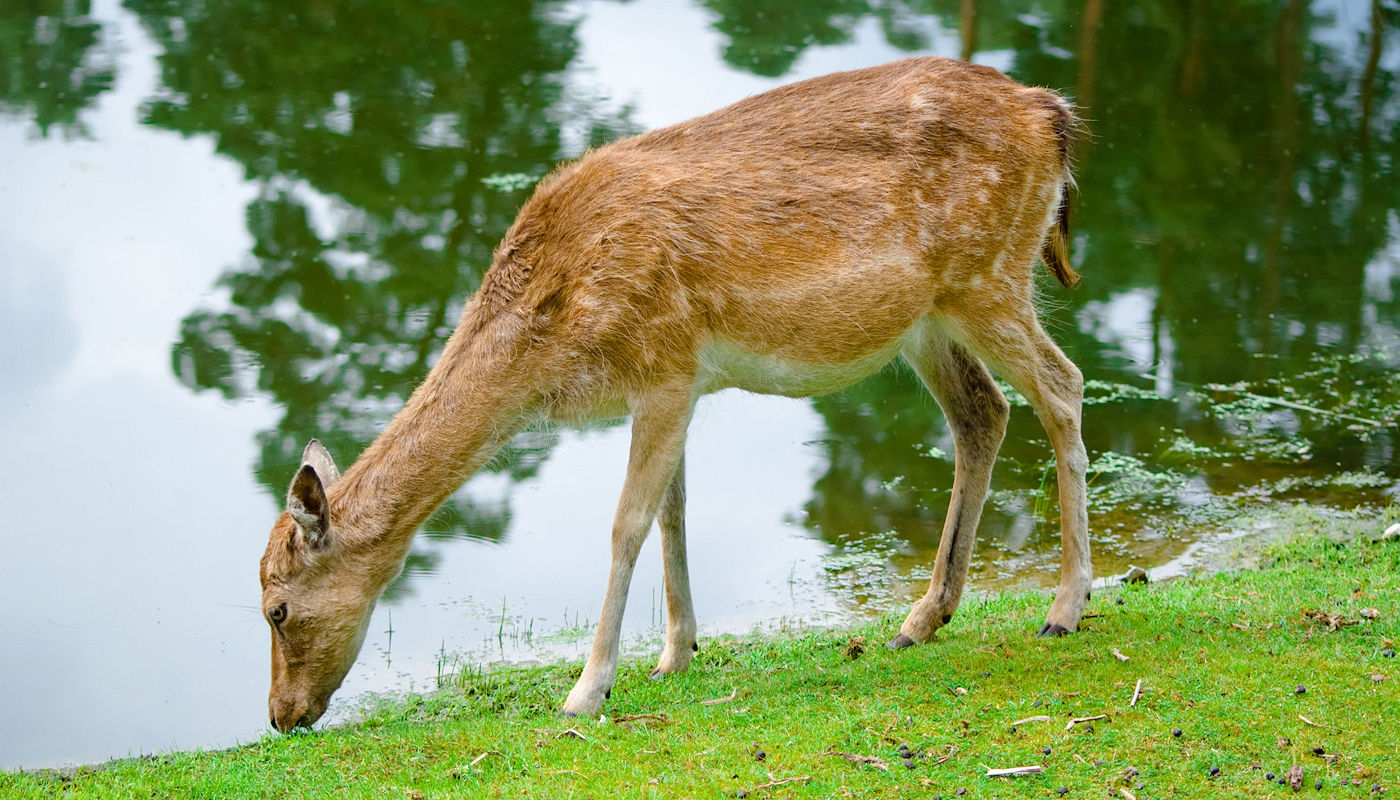

Naturescape Landscaping
Naturescaping Solutions from Texoma Excavation & Construction
Naturescape Landscaping
Naturescaping Solutions from Texoma Excavation & Construction
Naturescape landscaping is a method of landscape design and landscaping that allows people and nature to coexist with landscaping. It involves using simple techniques that mimic nature, such as using native plants, creating diversity, avoiding chemicals, and incorporating natural features. Naturescape landscaping can make your yard a safe and healthy place for children, pets, and wildlife, as well as save you time and money by reducing water, energy, and maintenance needs. Naturescaping can also help you attract different kinds of wildlife, such as birds, butterflies, mammals, amphibians, and reptiles, by providing them with food, water, cover, and places to breed and raise their young. You can naturescape stormwater drainage features to enhance their attraction to wildlife, especially by adding stormwater wetlands and dry detention basins.
Texoma Excavation & Construction (TEC) owner Zach Sander’s degree from Colorado State is in Wildlife Biology. Upon graduation, he put his degree to work at the Division of Wildlife in Colorado for about 5 years engaged in building improvements that ranged from ponds, and riparian (river like) areas, to planting food plots and growing crops for wildlife. He uses this experience to provide naturescape landscaping services to those who own land and want to enhance its wildlife habitat capacities, increasing the number of deer, ducks, turkeys, bees, butterflies, or other wildlife (big or very small) that might enjoy its use.
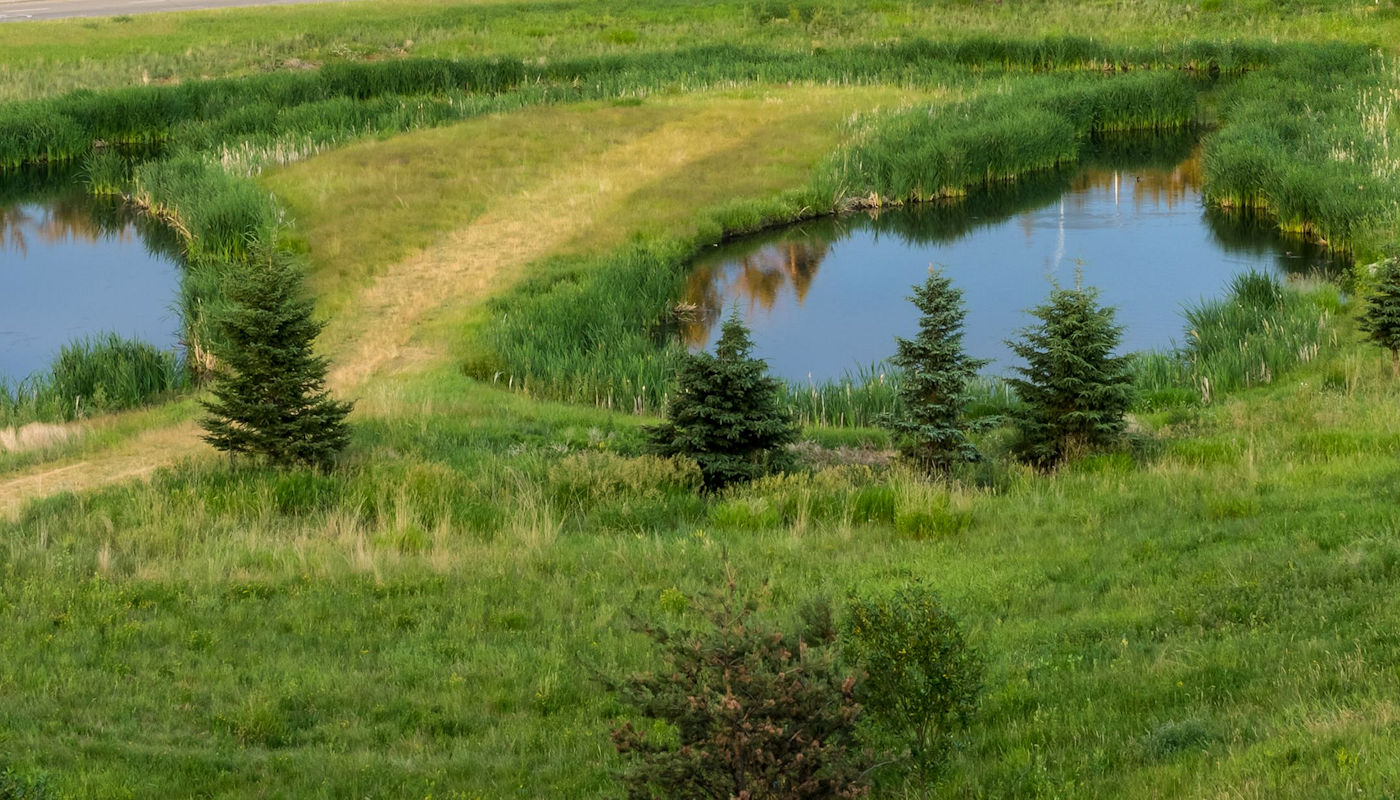
What type of drainage features lend themselves to Naturescape Landscaping:
What type of drainage features
lend themselves to Naturescape Landscaping:
- Stormwater wetlands: These are artificial wetlands that are designed to treat stormwater runoff by removing pollutants through settling and biological uptake. They also provide habitat and aesthetic value for wildlife, especially birds, amphibians, and reptiles.
- Dry detention basins: These are stormwater basins that are designed to slow down stormwater runoff and reduce downstream flooding. They can be converted to natural ecosystems by increasing infiltration, planting native vegetation, and creating diversity and complexity.
- Stormwater runoff control: These are practices that aim to reduce the amount and speed of stormwater runoff from impervious surfaces such as roofs, driveways, and roads.
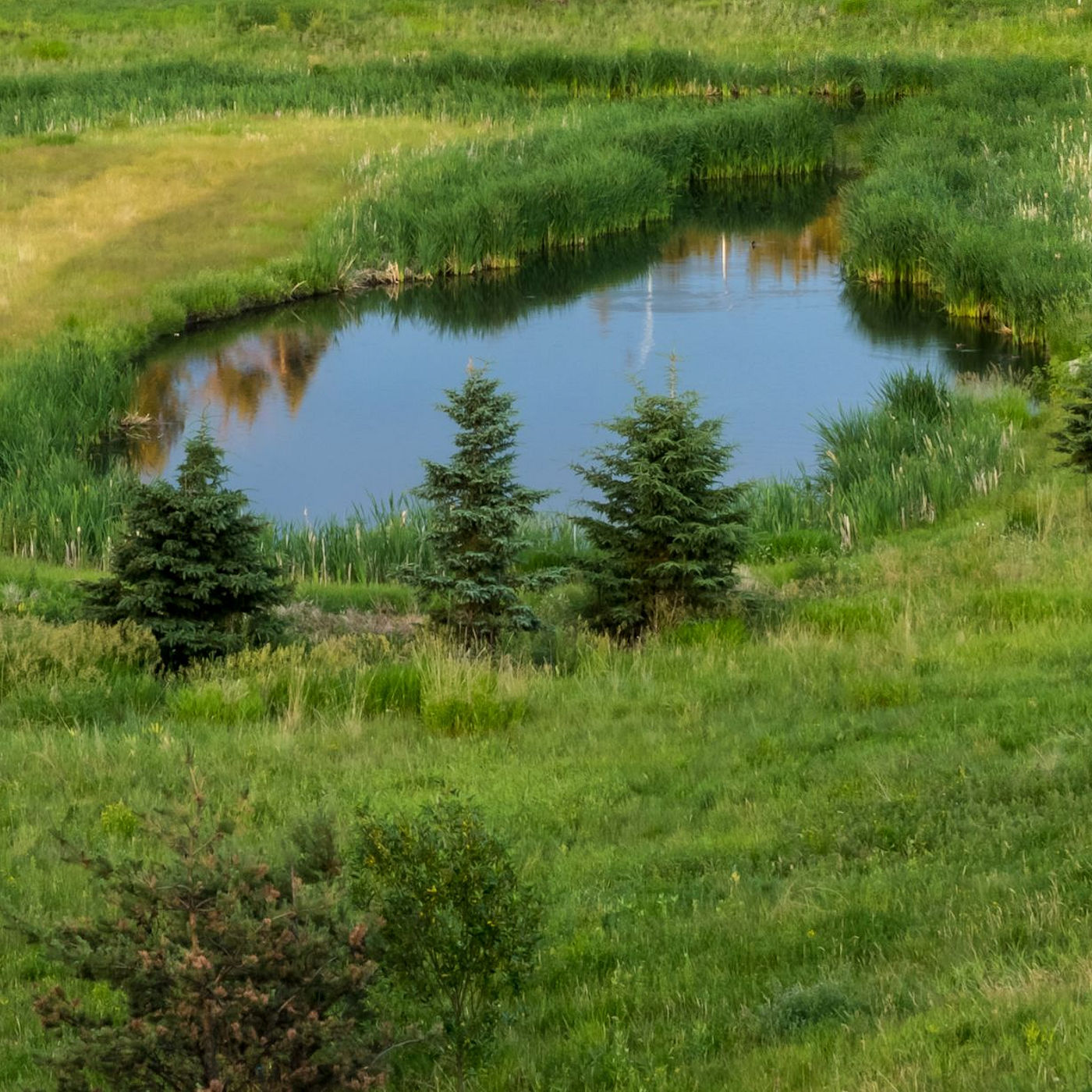
They include using permeable pavement, rain barrels, rain gardens, green roofs, and vegetated swales. They can help recharge groundwater, filter pollutants, and create habitat for wildlife and pollinators.
- Simple structures: These are low-tech approaches that mimic natural features such as beaver dams, rock dams, or mud and branch mounds. They can help slow the flow of water and spread it across the floodplain, enhancing soil moisture, plant growth, and groundwater recharge. They can also provide shelter and food for wildlife such as fish, insects, and mammals.
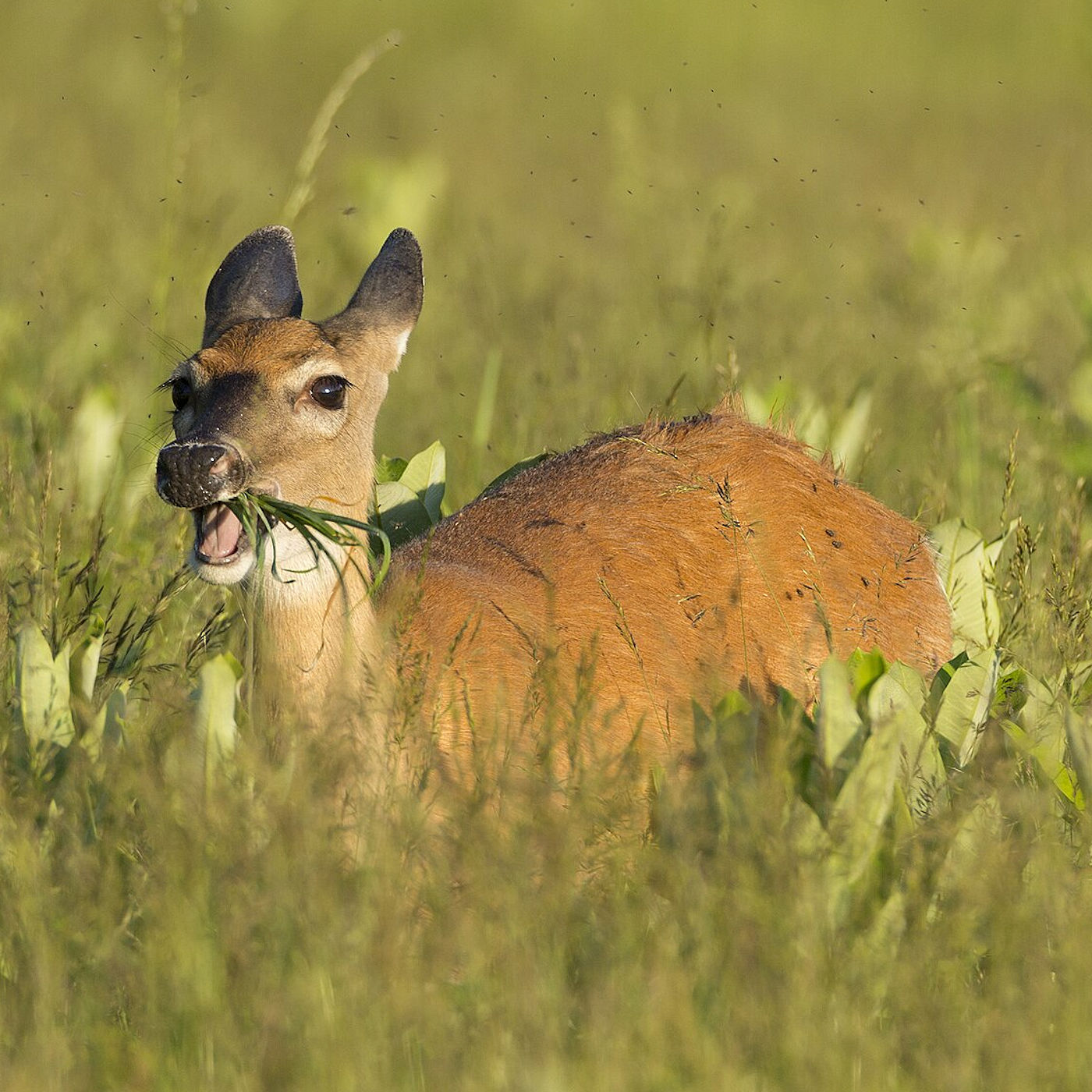
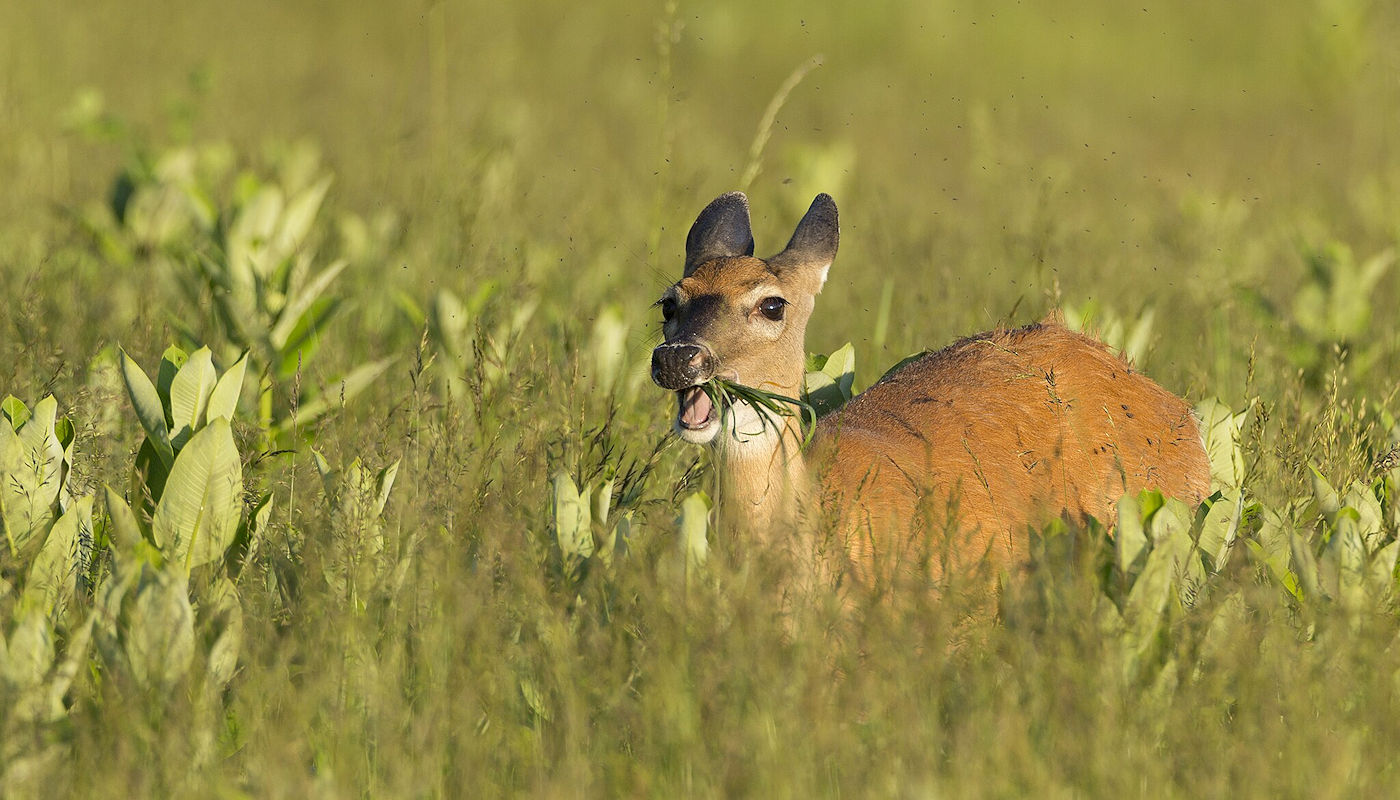
To attract wildlife to certain landscaping features and protect other landscaping such as dry creek beds, general lawn, etc. from others, you can try some of the following strategies:
Use native plants that are adapted to your climate and soil conditions, and that offer a variety of food sources and shelter for different wildlife species [1].
- Create diversity in your landscape by having different types of vegetation, such as trees, shrubs, grasses, and flowers, and different heights, layers, and textures [4].
- Incorporate natural features such as rocks, logs, brush piles, ponds, and wetlands that can provide habitat and water for wildlife [3].
Use native plants that are adapted to your climate and soil conditions, and that offer a variety of food sources and shelter for different wildlife species [1].
- Create diversity in your landscape by having different types of vegetation, such as trees, shrubs, grasses, and flowers, and different heights, layers, and textures [4].
- Incorporate natural features such as rocks, logs, brush piles, ponds, and wetlands that can provide habitat and water for wildlife [3].
- Avoid or minimize the use of pesticides, herbicides, and fertilizers that can harm wildlife and pollute water sources [1][4].
- Use physical barriers such as fences, netting, cages, or wire mesh to protect your plants from wildlife browsing [2].
- Use repellents such as soap, hair, garlic, hot pepper, or commercial products to deter wildlife from eating your plants [2].
- Provide alternative food sources for wildlife such as clover, alfalfa, oats, rye, or corn in a separate area of your property [2].
- Use durable liner materials such as RPE to prevent nuisance animals that burrow from damaging your drainage features [5].
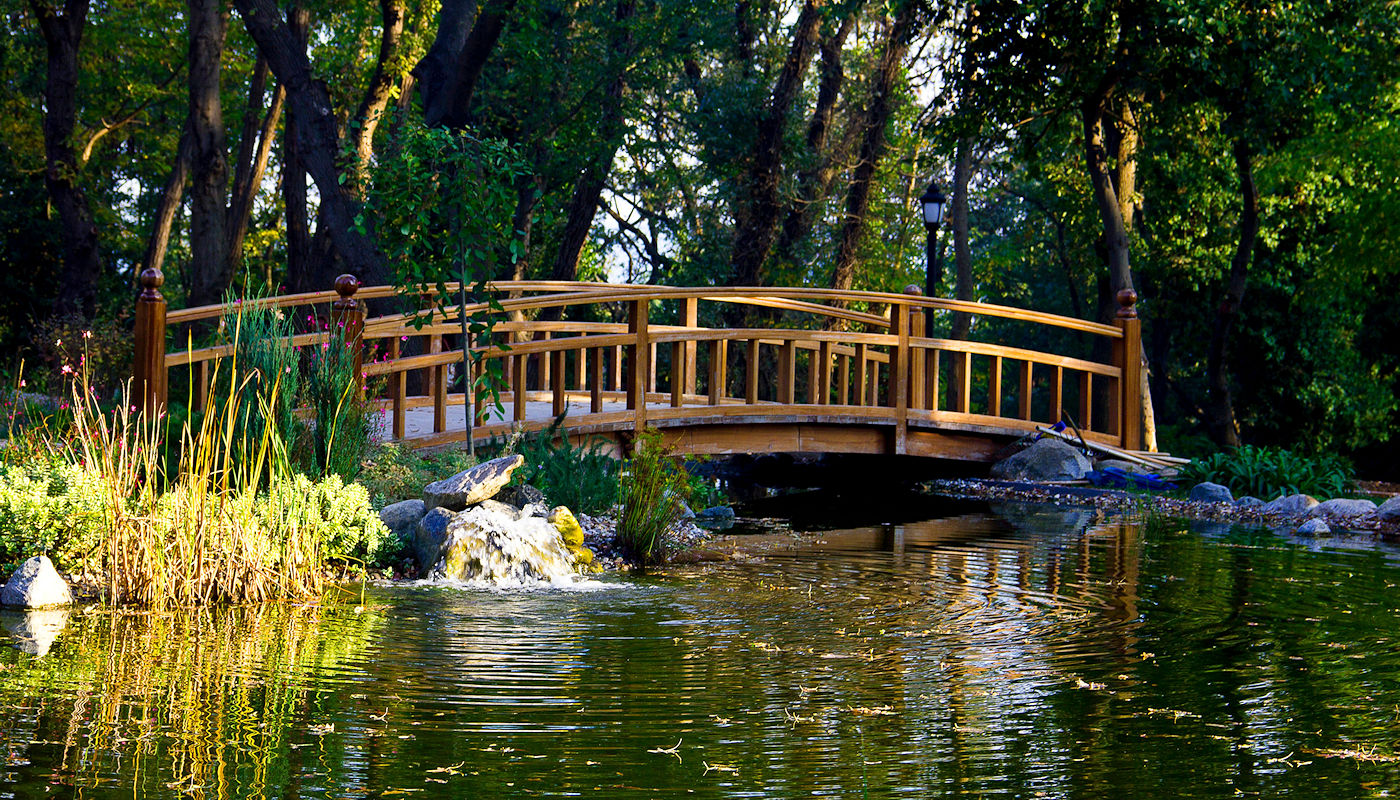
Some common mistakes to avoid when creating drainage features for wildlife habitat are:
- Creating drainage features that are too deep, too steep, or too isolated for wildlife to access or escape. For example, a pond that is too deep may drown small mammals or amphibians, or a basin that is too steep may prevent wildlife from entering or leaving [6].
- Creating drainage features that are too uniform, too sterile, or too manicured for wildlife to find food, cover, or places to breed and raise young. For example, a wetland that is mowed or sprayed with herbicides may lose its native plant diversity and complexity, or a pond that is devoid of rocks, logs, or vegetation may lack habitat structure and shelter [7][8].
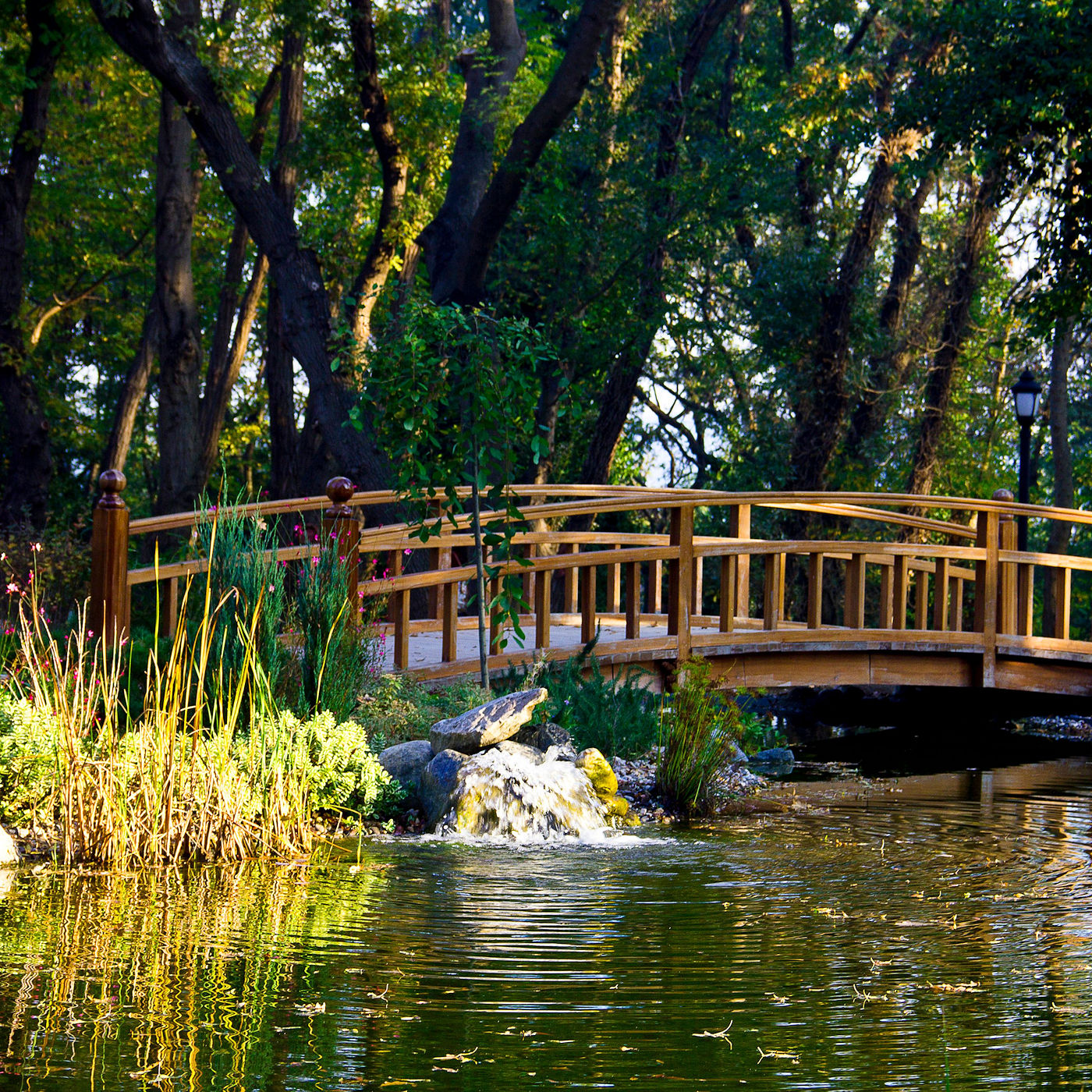
- Creating drainage features that are too close, too connected, or too attractive to predators or pests. For example, a pond that is near a road or a fence may expose wildlife to traffic or domestic animals, or a basin that is connected to a sewer or a storm drain may introduce pollutants or invasive species, or a wetland that is planted with non-native plants may attract deer or geese that can overgraze or damage the vegetation [6][7][8].
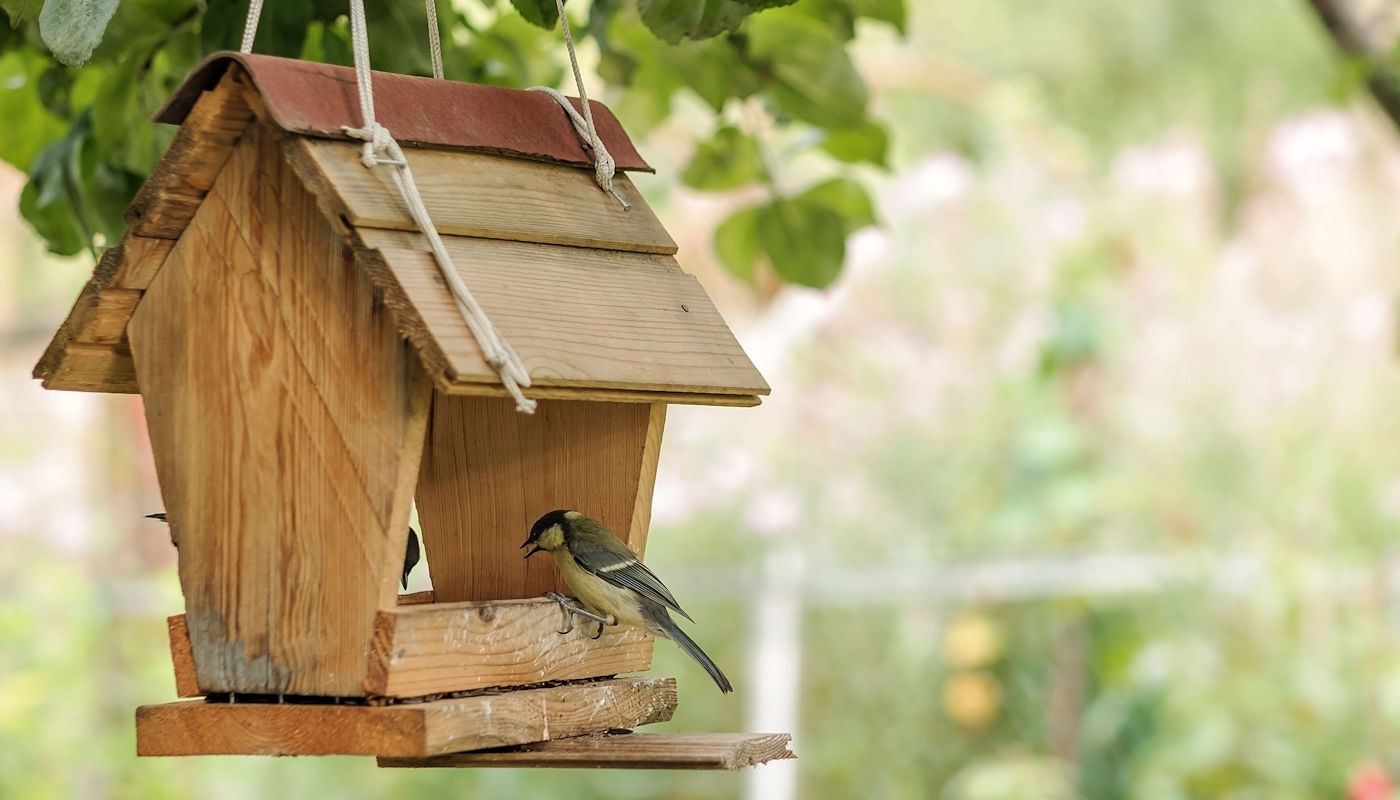
Using Animal Feeders to Attract & Sustain Wildlife in Your Naturescape
Throw a Year-Round Party for Your Animal Friends
- You don’t need 5 to 50 acres to create a place that provides a habitat that encourages the growth and survival of your local ‘critters’. Regardless of the size of your property you can create safe spaces for various species of birds, mammals, and insects to rest, feed, and nest. Water features don’t have to be excavated ponds, they can be a large bowl of water or a birdbath. Many forms for nesting and security can be provided by logs, snags, leaf piles, bark, rocks, bird and bat houses, and brush piles. Note: there is method in the use of logs and brush piles, so don’t just dump a load of leaves and straw somewhere.
- For smaller properties, think of your yard as a ‘Great Room’ in a house. Take the roof off and look down and you’ll see open areas that before the concept emerged in the late 20th century, the dining area, kitchen, den, living room, etc., were all separated by walls. Removing the walls created a sense of openness that allowed crowds at parties to gather at various ‘feeders’ like a bar, food and hors d’oeuvres table, media/entertainment area for folks watching the big game, fireplace, patio, pool deck, etc. were natural gathering spots that attracted different folks.
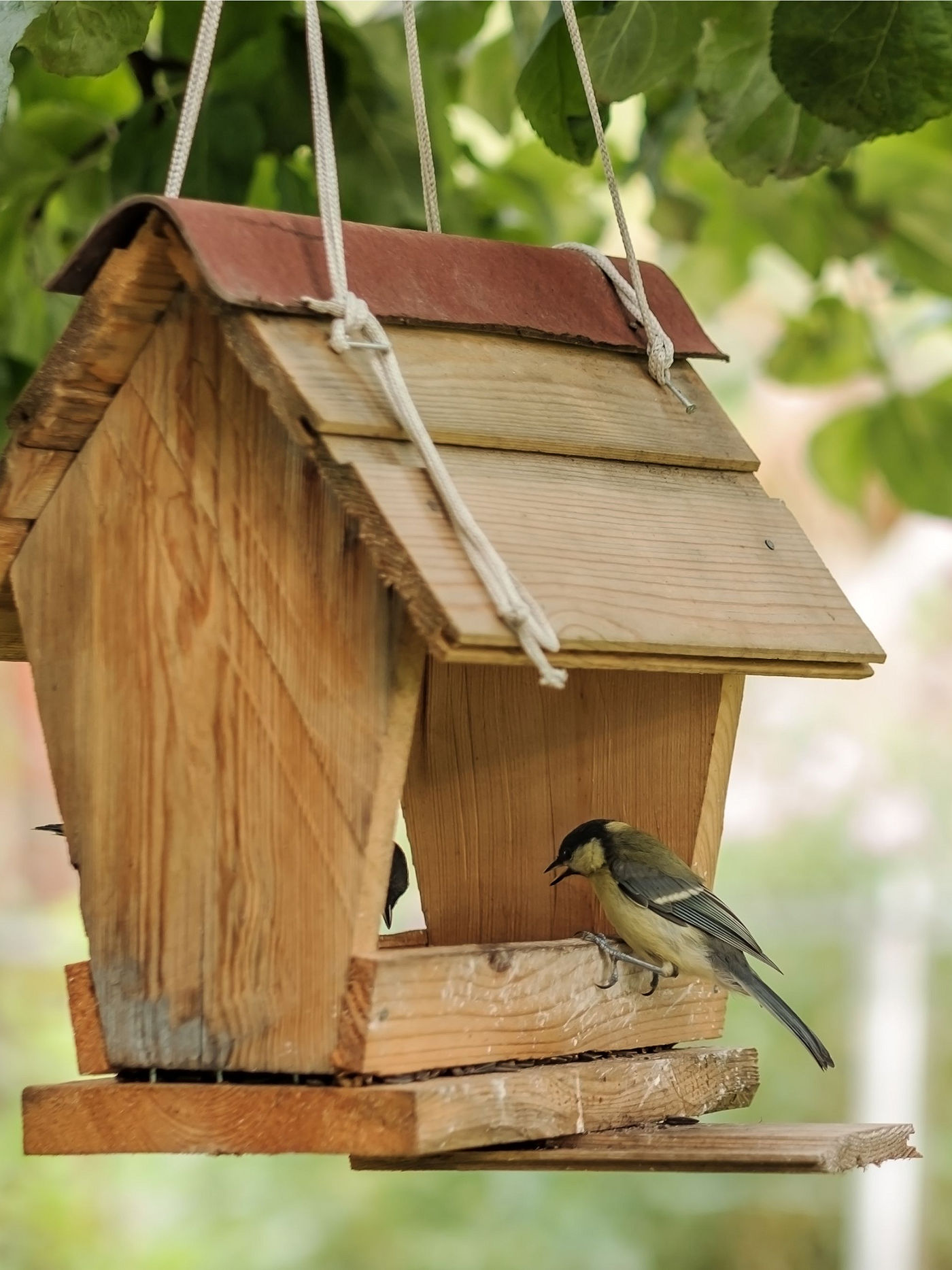
- Now, look down on your yard (easier since there is no roof to remove), and see where you can create these gathering spaces for your wildlife friends. Replace the bar with the water bowl or bird bath; Replace the food tables with animal feeders of various types; Replace the fireplace and media centers with various groupings of plants native to your area of different sizes to form layers. Create one small area to start. Add areas, considering how your new friends will move safely from one area to another.
Naturescaping & Rainscaping Solutions:
Drainage Solutions for Yard & Landscaping
If you’re experiencing poor drainage on your property, it’s important to address the issue promptly to prevent further damage and potential safety hazards. Texoma Excavation & Construction can help identify the root cause of your drainage problems and provide effective solutions to keep your property safe and well-maintained.
Erosion Management & Control Contractor
Texoma Excavation & Construction is an excavation company and erosion control contractor specializing in soil erosion management. We design, implement, and maintain residential, commercial, and construction site erosion control plans. We use a variety of techniques to prevent soil erosion, including vegetation, retaining walls, and a variety of drainage systems for the job. [read more]
Gravel Roads, Drives & Driveways Contractor
TEC specializes in building gravel and road base private roads, drives, driveways, & parking areas that are both durable and reliable, tailored to meet your specific needs. Our comprehensive approach ensures that every aspect of your project is meticulously planned and executed, from initial surveying to post-project maintenance. [read more]
Landscape Grading & Excavating Contractor Services
Texoma Excavation and Construction Company’s landscape grading and excavation services involve leveling or sloping the land around a property to improve its appearance, functionality, and drainage. Landscape grading can help prevent water damage, soil erosion, flooding, and other problems caused by poor drainage or uneven terrain. [read more]
Naturescape Landscaping
Naturescape landscaping involves using simple techniques that mimic nature, such as using native plants, creating diversity, avoiding chemicals, and incorporating natural features. Naturescape landscaping can make your yard a safe and healthy place for children, pets, and wildlife, as well as save you time and money by reducing water, energy, and maintenance needs. [read more]
Pond Building Contractor
Pond Building Solutions from Texoma Excavation & Construction: There are many reasons why you may consider adding an excavated pond to your property. You may want to enhance the beauty and value of the property as a pond can create a focal point in the outdoor space, adding to its overall appeal and marketability. [read more]
Rainscaping: Manage Rainwater Where it Falls with style!
Rainscaping is a term that emerged in 2008 describing a variety of practices that manage stormwater runoff in a sustainable and aesthetic way. Rainscaping is any combination of plantings, water features, catch basins, and other activities that manage stormwater as close as possible to where it falls, rather than moving it someplace else. [read more]
Septic System & Septic Tank Installation & Replacement
When it comes to maintaining healthy and efficient septic tanks and septic systems, selecting a company for professional septic tank installation and replacement services is crucial. Proper installation and replacement of septic tanks or entire septic systems ensure the efficient and safe disposal of wastewater, preventing potential health hazards and environmental contamination. [read more]
Tree and Branch Clearing and Removal Services
Specializing in comprehensive tree and branch clearing and removal services tailored for the unique needs of residential, commercial, ranch, and farming properties. Our expert team is dedicated to enhancing the safety, aesthetics, and functionality of your land through professional tree trimming, removal, stump grinding, and storm damage cleanup. [read more]
Trench Digging Services
Trench Digging Services Open Cut Trenching for Water, Sewer & Gas Utilities Trench Digging Services Open Cut Trenching for Water, Sewer & Gas Utilities Looking for reliable trench digging services in the Texoma region? Texoma Excavation & Construction (TEC) offers expert trenching solutions for all your utility installation needs.[read more]
Naturescaping & Rainscaping Related Topics:
Use Permeable Pavements to Reduce Hardscape Stormwater Runoff
Permeable pavement materials are used in rainscaping for walking paths and other purposes such as driveways, parking areas, patios, tennis courts and even streets. Rainscaping refers to any combination of plantings, water features, catch basins, permeable pavements and other methods of managing stormwater as close as possible to where it falls, rather than moving it someplace else. [read more]
Dry Detention Basins for Stormwater Control
A dry detention basin manages stormwater by temporarily storing runoff from rain events, releasing it slowly, preventing downstream flooding and erosion. A dry detention basin does not have a permanent pool of water, unlike a stormwater retaining pond, which is designed to hold water for longer periods and provide some water quality benefits. [read more]
Constructed Stormwater Wetland
A constructed stormwater wetland is a type of stormwater management practice that mimics the functions of natural wetlands. It collects, stores, and treats stormwater runoff using physical, chemical, and biological processes. Stormwater wetlands can help reduce peak flows, improve water quality, and provide habitat for wildlife. read more
Using Animal Feeders to Attract & Sustain Wildlife in Your Naturescape
Depending on the type and location of your feeders, you can attract a range of animals, reptiles, and insects to your backyard. These include: animals such as deer, opossums &weasels; Reptiles such as snakes, lizards, and turtles; Insects such as butterflies and bees may be attracted to feeders providing nectar, pollen, or fruit. [read more]
Dry Creek Bed Landscaping for Drainage
A dry creek bed with rocks is an effective solution to certain drainage issues. A dry creek bed is a decorative landscaping feature that mimics the look of a natural creek or riverbed, but without the water. It is designed to channel water from a particular area, directing it to a designated drainage point. Dry stream beds, dry riverbeds, dry swales, are also names for dry creek beds. [read more]
Dry Well Drainage Systems
A dry well is a hole in the ground that is filled with gravel and surrounded by landscape fabric. The purpose of a dry well drainage system is to dispose of unwanted water, such as surface runoff, stormwater, or greywater, by dispersing it into the ground. Installing a dry well is one of the best methods employed to drain excess stormwater from your yard. [read more]
French Drain Systems
A French drain system (also known as a “subsurface drain”, a “weeping tile”, or a “rock drain”) is a trench filled with gravel or rock, with a perforated pipe embedded in the gravel at an angle so that gravity carries water away from the home. From what is visible, a French drain looks like a rock drainage ditch. When done well, it appears to be a nice hardscaping element. [read more]
Rain Garden Plants That Thrive in Texas & Oklahoma
Rain gardens are a type of landscaped garden site designed to capture and absorb stormwater flowing away from your house or some other area of your residential or commercial property. Rain gardens are a very practical way to address many drainage issues with the added benefit of being an attractive landscaping feature. [read more]
Add a Rain Garden for Drainage Control & Landscaping Beauty
A rain garden is a type of landscaped garden site designed to capture and absorb stormwater flowing away from your house or some other area of your residential or commercial property that will benefit from this drainage method. Rain gardens are a very practical way to address many drainage issues with the added benefit of being an attractive landscaping features. [read more]
811 Call Before You Dig Underground Utilities
Call before you dig underground utilities for any type construction project. This is the law, and it's there to protect your property and any workers from hitting buried utilities. By calling 811, you can create a notification that will be sent to all the utility companies that are within your work area, instead of searching for multiple utility companies and notifying each one about your project. [read more]
Resources
- 1NPDES: Stormwater Best Management Practices, Stormwater Wetland , Online pdf resource.
- 2
- 3STORMWATER RUNOFF CONTROL , Natural Resources Conservation Service. Online pdf resource.
- 4Simple hand-built structures can help streams survive wildfires and drought , Science News. Online resource.
- 5Attracting Wildlife Without Damage to the Retention Pond , BTL Liners. Online resource.
- 6Management Practices for Enhancing Wildlife Habitat , Penn State Extension. Online resource.
- 7Creating a Wildlife Habitat Management Plan for Landowners , Purdue University Extension Service. Online resource.
- 8Creating wildlife habitat in your landscape , OSU Extension Service. Online resource.
Past Excavation Projects
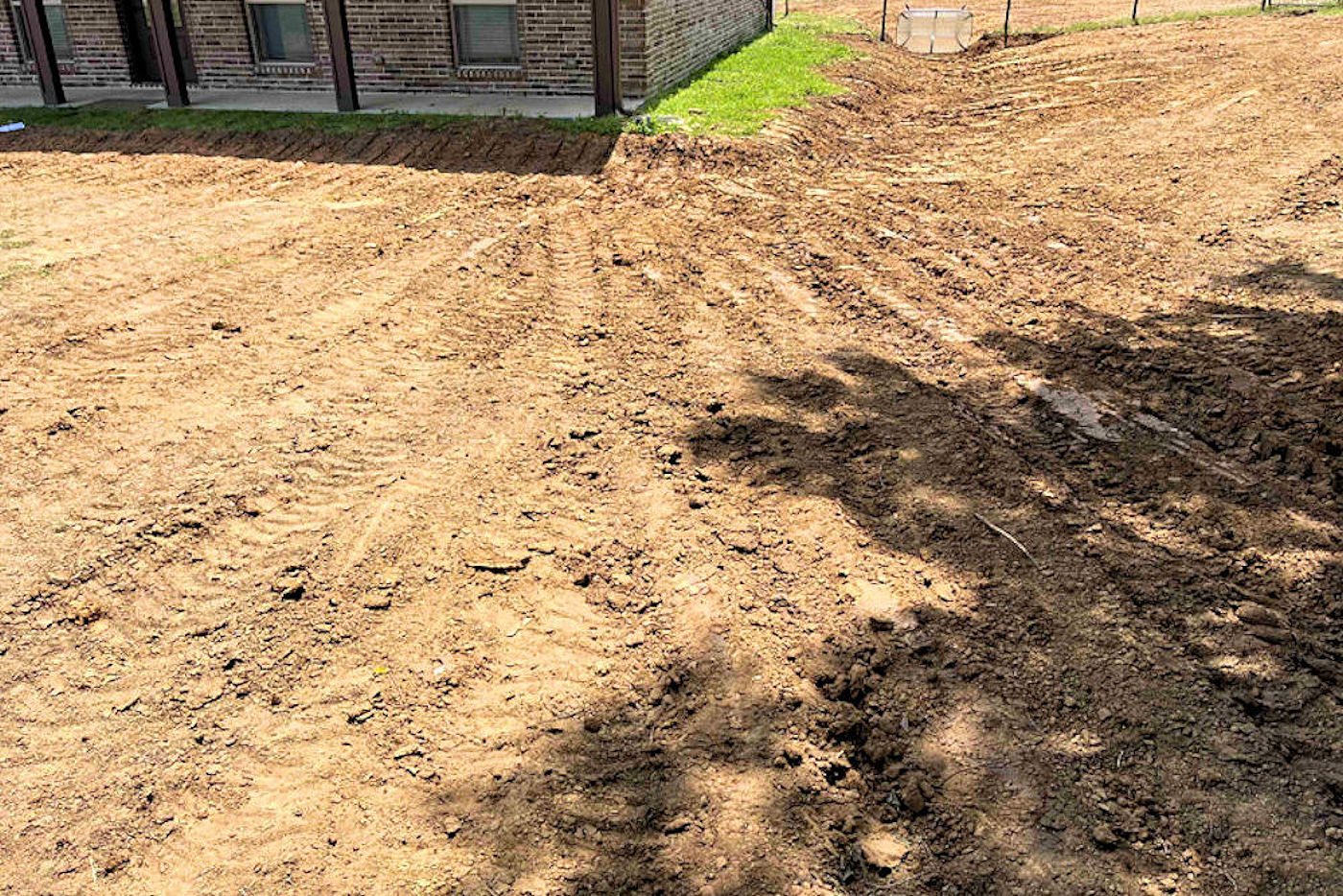
The above image shows Texoma Excavation & Construction digging a new power supply ditch and tying into the existing live power supply near Melissa, Texas. The paver stones were salvaged to be replaced. All the PVC, electrical conduit, phone lines, and small electrical lines that were destroyed were anticipated.

Pond building is a complex process that requires careful planning and execution. After all the planning, the first construction step is excavation of the area where the pond will be located. The pond excavation work shown above was near Montague, Texas. When this pond is full, it will be 7′ 2″ deep at its deepest point.
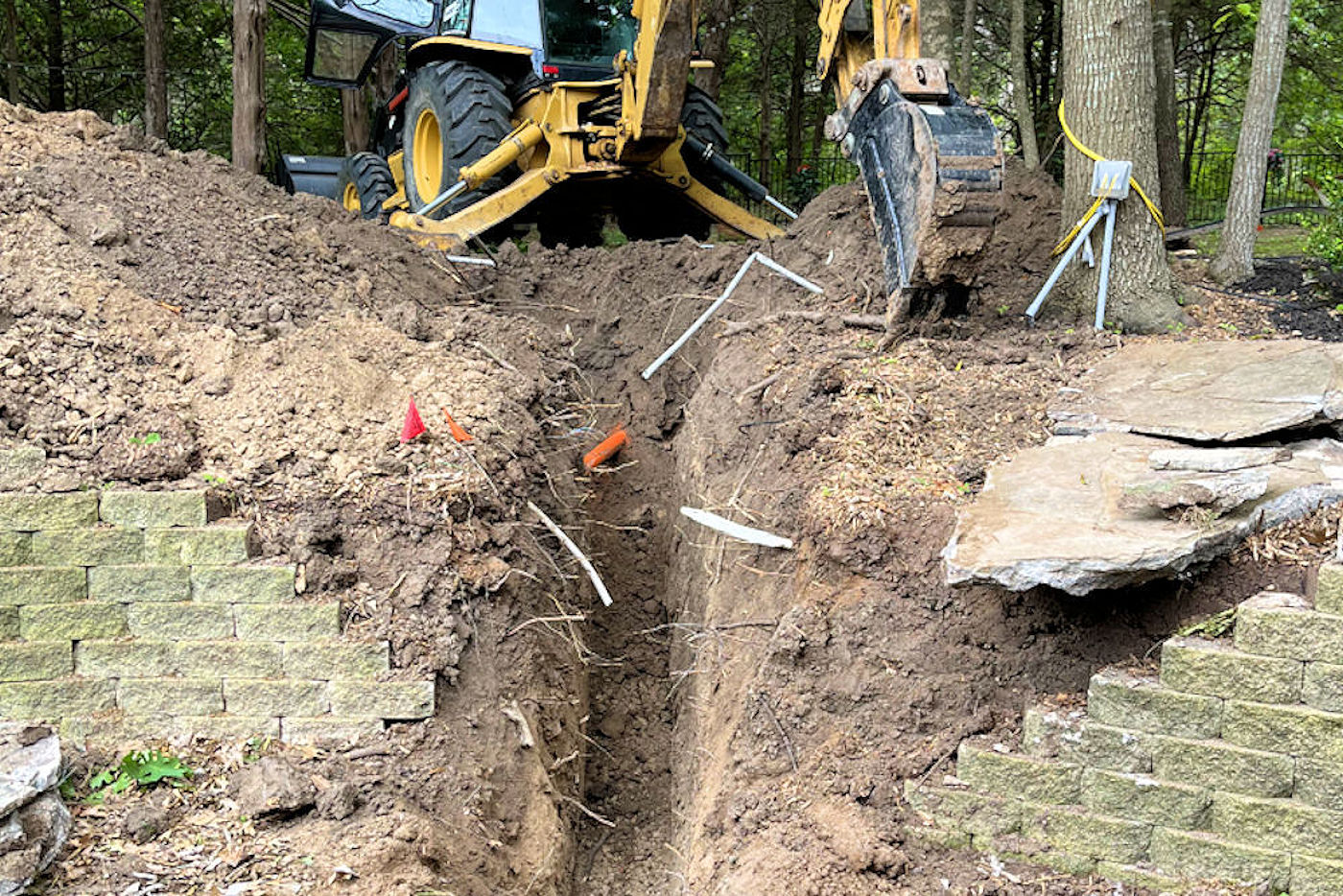
Residential drainage excavation work done near Denison, Texas. This client had some significant drainage problems during periods of high-volume runoff and tried to excavate a ditch to channel water away from his house. We were hired to polish the existing ditch and spread some grass seed.
Cattle Guards: Managing
Livestock Movement
Used in livestock management, particularly in controlling the movement of cattle across different grazing areas. They play a crucial role in preventing overgrazing and managing cattle grazing where cattle have access to more than one pasture.
Types of Erosion Affecting
Ranches & Farms
Ranches and farms are particularly vulnerable to all forms of erosion, with sheet and gully erosion being the most prevalent. These types of erosion can have significant impacts on the productivity and sustainability of these agricultural lands.
Tillage Erosion
Causes & Mitigation
Caused by the movement of soil during tillage, it involves three distinct actions: soil detachment by the use of a tool, redistribution of the soil through movement, and deposition of the soil elsewhere.
Construction Site Erosion Control
Construction sites are particularly susceptible to soil erosion, given their exposure to the harsh elements of weather. This vulnerability necessitates a comprehensive approach that encompasses meticulous planning, thoughtful design, precise implementation, and diligent monitoring.
Effects of Erosion Types
on Homes and Businesses
The most prevalent types of soil erosion effecting Residential and commercial properties are sheetsheet and rill erosion, primarily caused by stormwater runoff from impervious surfaces, also referred to as hardscapes. These include roofs, driveways, patios, decks, and adjacent streets.
Permeable Pavements
Rainscaping Benefits
Describes the benefits of various types of permanent pavement materials including stormwater runoff reduction, reduces strain on sewer systems, reduces need for road salt and drainage features, and more.


